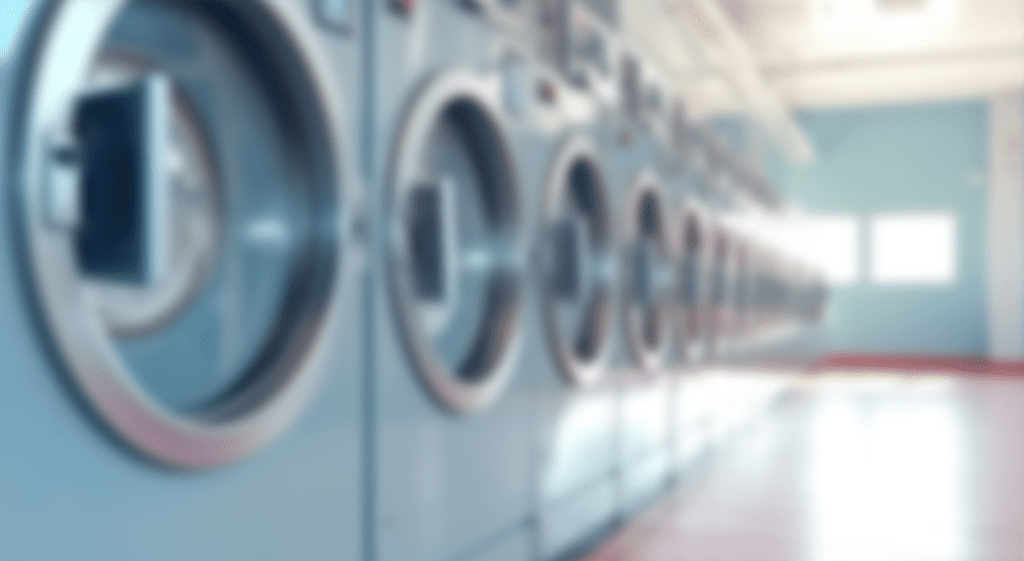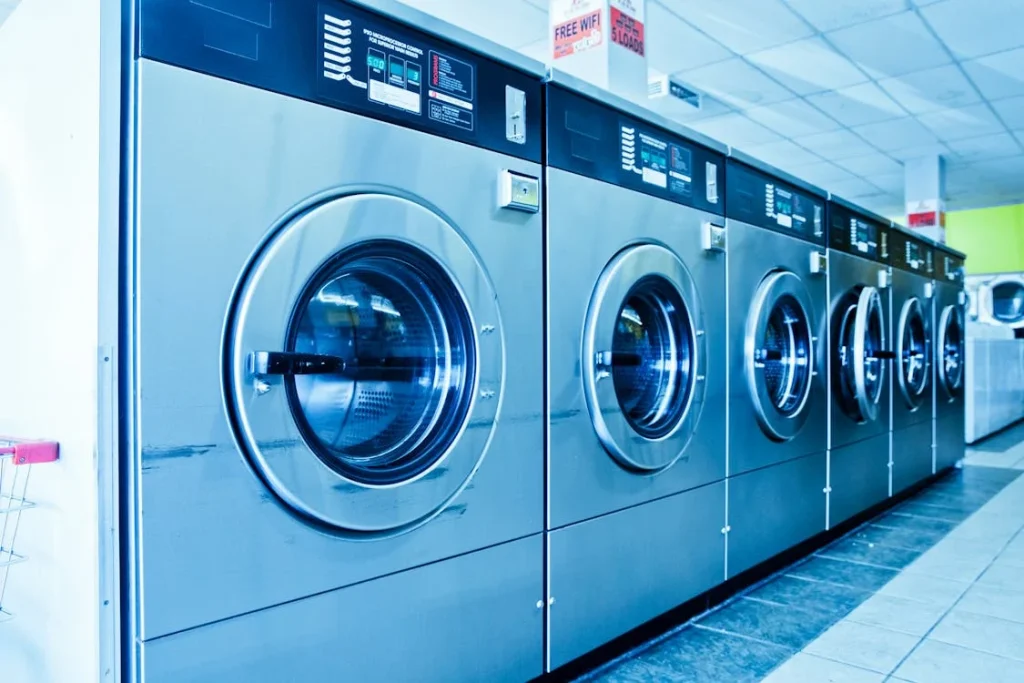Industrial laundry operations running day in and day out, handling large loads and heavy-duty cleaning tasks. Downtime can cost your business more than just repair fees; it can also result in lost productivity, unsatisfied clients, and increased operational costs. In this article, we’ll dive into simple yet effective ways to keep your machines in top shape for longer, saving you money and reducing the risk of unexpected breakdowns.
Table of Contents
- 1. Key Factors that Affect the Lifespan of Your Industrial Washing Machine
- 2. Routine Maintenance Tips for Longevity
- 3. Advanced Maintenance Practices
- 4. Troubleshooting Common Issues
- 5. Creating a Maintenance Schedule
- 6. Conclusion: A Well-Maintained Machine is a Productive Machine
- 7. FAQs

1. Key Factors that Affect the Lifespan of Your Industrial Washing Machine
Understanding what affects the longevity of your industrial washing machine is crucial for maintenance planning. From usage patterns to the water quality, several factors play a role in how long your machine will last.
1.1. Frequency of Use
It might seem obvious, but the more frequently your machine is used, the quicker it may wear out. Continuous operation without breaks can cause parts to wear down faster. However, this doesn’t mean you should stop running your machines frequently. Instead, it’s about finding a balance between operation and rest, ensuring that the wear and tear are evenly distributed.
1.2. Water Quality
Water quality is often overlooked in industrial laundry maintenance, but it’s one of the most significant factors affecting the lifespan of your machine. Hard water, for instance, can lead to mineral buildup in internal components like pumps and hoses. Over time, this can cause blockages and corrosion, forcing your machine to work harder than it needs to, which accelerates wear and tear.
1.3. Detergents and Cleaning Agents
The type of detergent you use can also have a big impact on your machine’s health. Harsh chemicals or detergents that are not formulated for industrial machines can cause damage to internal parts, clogging pipes and filters. Always use detergents and cleaning agents that are specifically designed for heavy-duty industrial washing machines to ensure longevity.
2. Routine Maintenance Tips for Longevity
Now that we know what affects the lifespan of your machine, let’s talk about how you can help extend it through routine maintenance. These steps will not only prevent breakdowns but also keep your machine performing at its peak efficiency.
2.1. Regular Inspections and Diagnostics
Routine inspections are a must if you want your washing machine to run smoothly for years. A simple visual check can help you spot problems before they turn into costly repairs.
2.1.1. Checking for Leaks and Blockages
Leaks or blockages are one of the most common causes of washing machine failures. Regularly inspect hoses, seals, and water lines for any signs of leaks or clogs. Blocked drains or filters can also impede the machine’s ability to function properly, leading to further complications. Keeping an eye on these issues can prevent much larger problems down the line.
2.1.2. Inspecting Electrical Components
The electrical system of your washing machine should be checked periodically for wear and tear. Inspect wires and connections to make sure they’re in good condition and free from corrosion. Faulty electrical components can lead to poor performance or even dangerous malfunctions.
2.2. Cleaning the Filters and Drains
Over time, lint, soap, and other debris accumulate in the machine’s filters and drains, which can hinder performance. Regular cleaning of these components is essential to keep water flowing efficiently through the system and to prevent odors and blockages from building up.
2.3. Lubrication of Moving Parts
Machines with moving parts, such as the drum, hinges, and seals, need regular lubrication to prevent friction and wear. Use a lubricant that’s suitable for industrial washing machines and apply it as recommended by the manufacturer. This will keep the parts running smoothly and reduce the likelihood of mechanical failures.
2.4. Monitor and Adjust Water Temperature
Water temperature is a key factor in the cleaning process, but it also affects the longevity of your machine. Too high a temperature can strain your machine’s internal components, leading to faster degradation. Ensure that the water temperature is set correctly based on the load and fabric type, and consider using temperature controls to optimize performance.
3. Advanced Maintenance Practices
If you’re looking to go the extra mile with your machine maintenance, here are some advanced practices to ensure that your washing machine is running at peak efficiency.
3.1. Replacing Worn-Out Parts Early
It’s tempting to wait until a part breaks down before replacing it, but this can lead to bigger problems. If you notice that certain parts, like belts or seals, are starting to wear out, replace them before they fail. Doing so prevents further damage and keeps your machine running without interruption.
3.2. Calibration and Tuning
Over time, your washing machine’s settings may drift, affecting the washing cycle and efficiency. Regular calibration and tuning ensure that the machine operates at optimal settings, saving energy and reducing strain on internal components. This is especially important in industrial laundry environments where precision is crucial.
3.3. Professional Servicing: When and Why?
While routine maintenance is something you can handle in-house, some issues may require a professional technician. Scheduling professional servicing at least once a year is a good practice to catch any underlying issues that you might miss during routine inspections. Professionals can conduct more thorough diagnostics and offer advice on how to improve machine performance.
4. Troubleshooting Common Issues
Even with the best maintenance practices, industrial washing machines can sometimes experience issues. Here are a few common problems and how you can troubleshoot them.
4.1. Drum Won’t Spin or Agitate
If the drum isn’t spinning or agitating, it could be due to a mechanical failure, such as a worn belt or a faulty motor. Check for any visible damage to these parts, and replace them if necessary. If the issue persists, you may need a technician to inspect the motor or transmission.
4.2. Water Not Draining Properly
Water not draining properly is another common problem. This can be caused by clogged drains, faulty pumps, or issues with the water inlet valve. Inspect these components and clear any blockages. If the problem persists, it may be time to call in a professional.
4.3. Unusual Noises or Vibrations
Unusual noises or vibrations are often a sign of something loose inside the machine or a worn-out bearing. Check the machine’s internal components for any signs of damage and tighten any loose parts. If you hear grinding or rubbing sounds, it may be necessary to replace parts like bearings or bushings.
5. Creating a Maintenance Schedule
A maintenance schedule helps keep your washing machine in good condition and ensures that you’re not overlooking important tasks. By planning ahead, you can prevent costly repairs and reduce downtime.
5.1. Daily, Weekly, and Monthly Tasks
Daily tasks may include cleaning the lint filter and checking for leaks, while weekly tasks could involve checking the hoses and inspecting the machine’s exterior. Monthly tasks might include cleaning the drum and conducting a more thorough inspection of the internal components.
5.2. How to Set Reminders and Track Maintenance
Setting reminders on your phone or using maintenance tracking software can help you stay on top of tasks. By tracking your maintenance efforts, you can ensure that nothing is overlooked and that your washing machine continues to run efficiently for years to come.
6. Conclusion: A Well-Maintained Machine is a Productive Machine
Taking the time to properly maintain your industrial washing machine can pay off in the long run. By following these tips and creating a regular maintenance schedule, you’ll extend the life of your machine, reduce costly repairs, and keep your laundry operation running smoothly. A little care goes a long way when it comes to keeping your machines working at their best!
7. FAQs
1. How often should I clean the filters on my industrial washing machine?
You should clean the filters at least once a week to ensure proper water flow and prevent blockages.
2. Can I use any detergent for my industrial washing machine?
It’s best to use detergents specifically designed for industrial washing machines to avoid damage to internal components.
3. What are the signs that my industrial washing machine needs professional servicing?
If you notice frequent breakdowns, unusual noises, or poor washing results despite regular maintenance, it’s time for professional servicing.
4. How can I prevent mineral buildup from hard water?
Consider installing a water softener to prevent hard water from damaging the machine’s internal parts.
5. How can I extend the lifespan of my washing machine’s drum?
Ensure regular lubrication, avoid overloading, and inspect the drum for any signs of wear or damage.
Here are some other articles that we think might interest you:
Environmental Impact of Industrial Laundry


